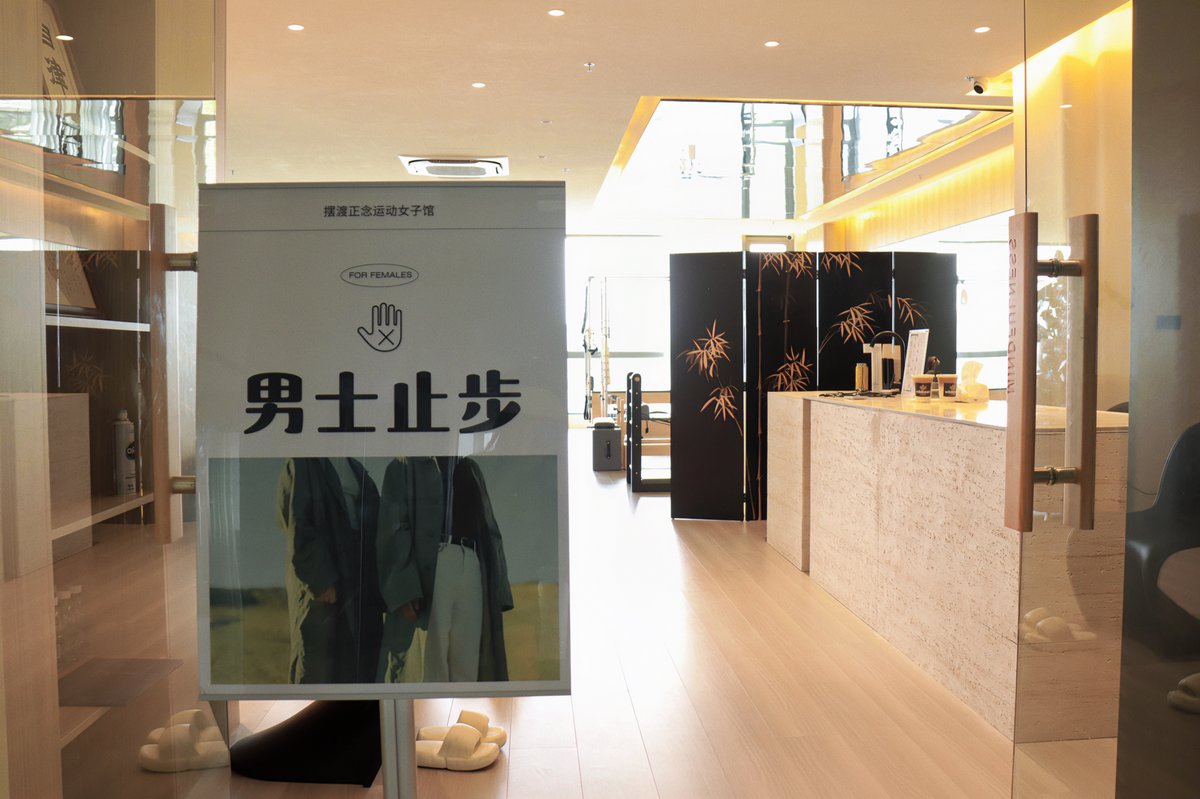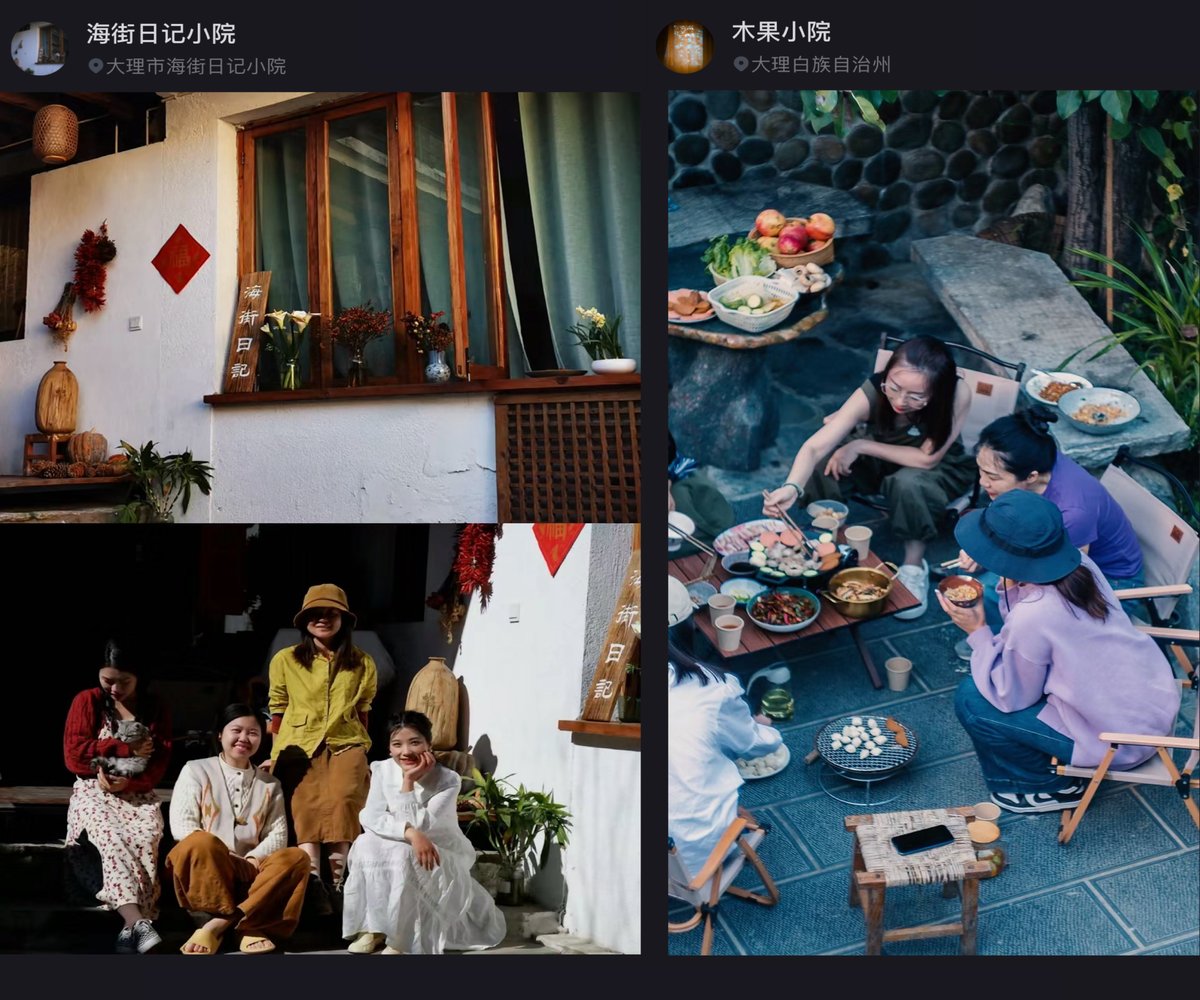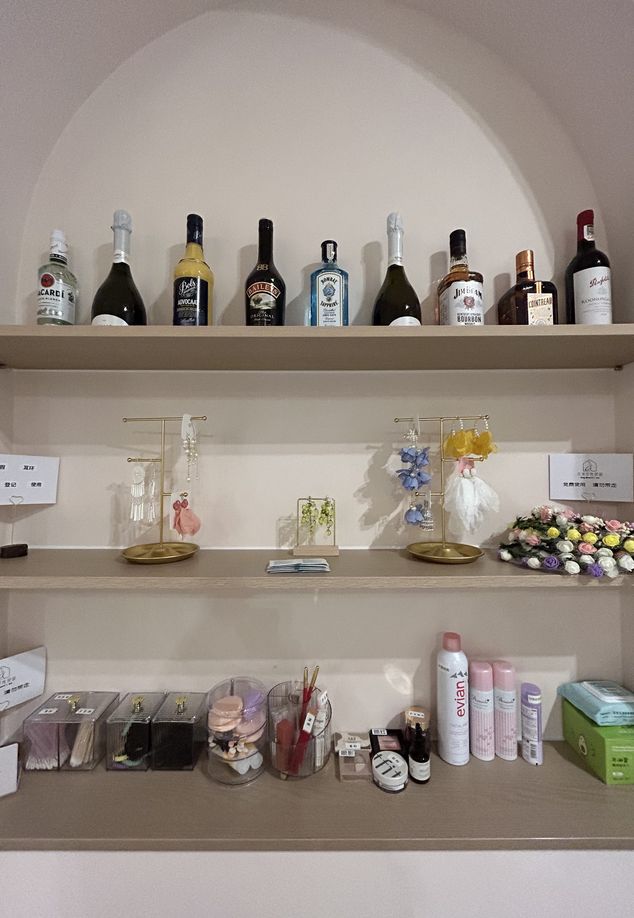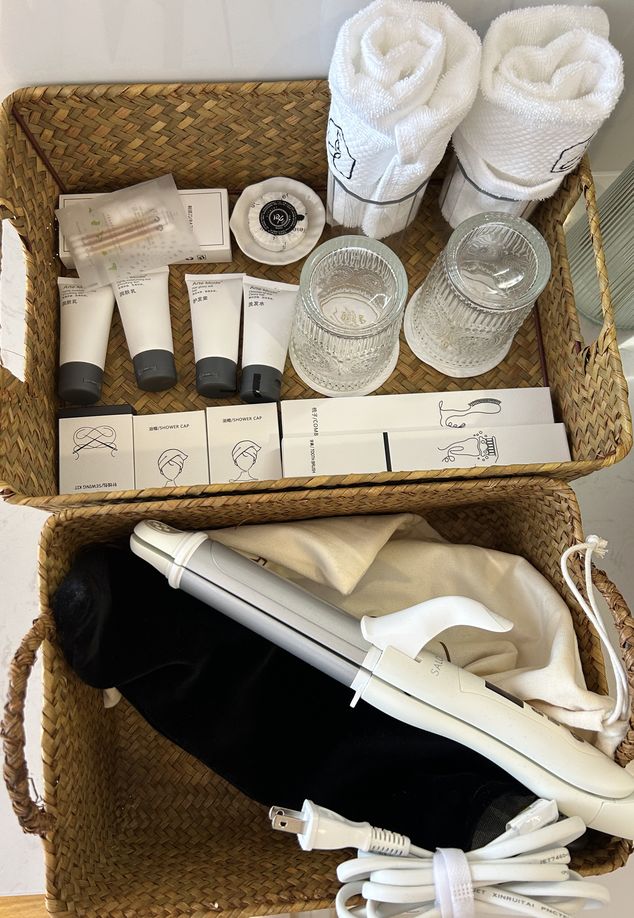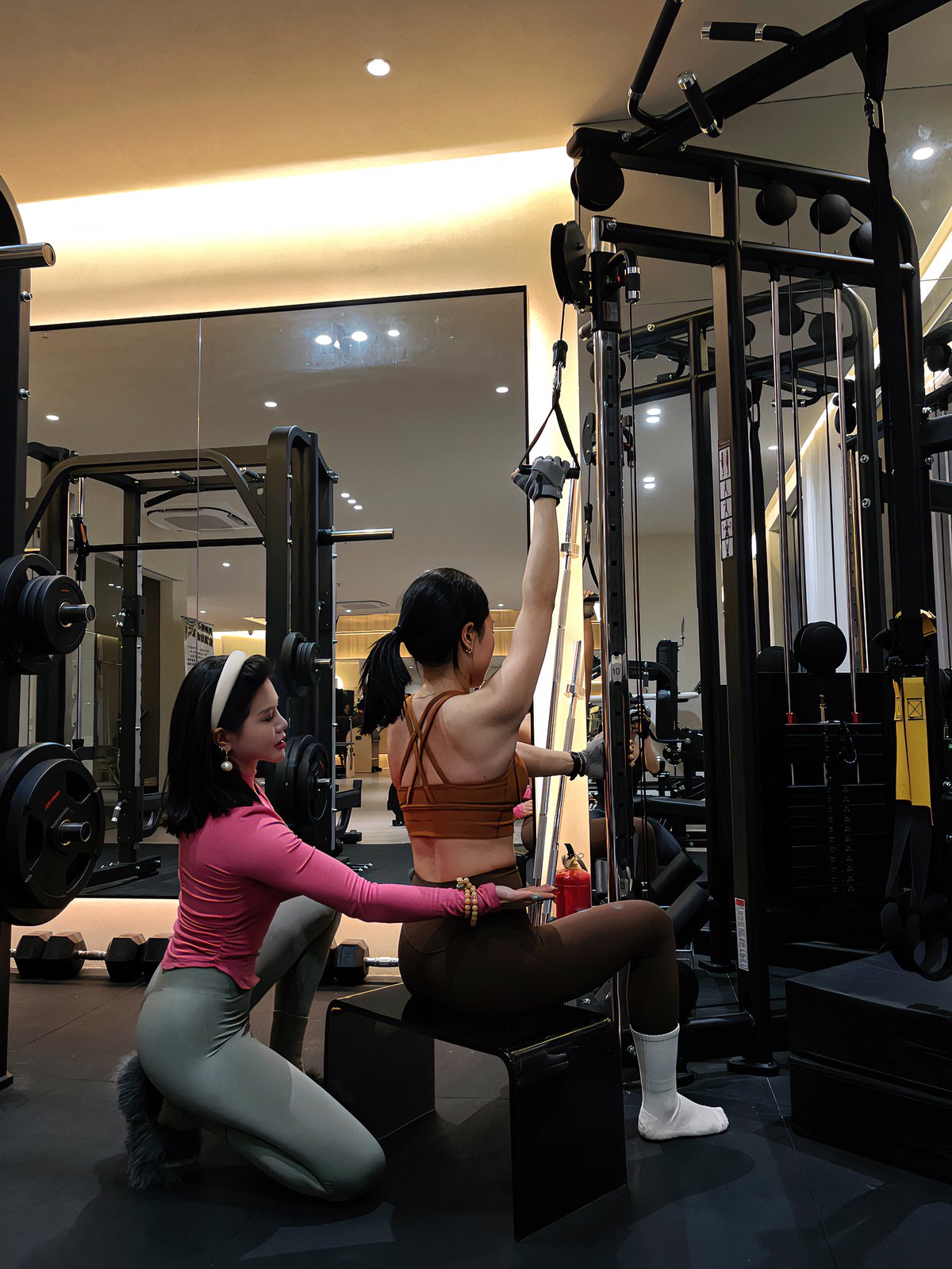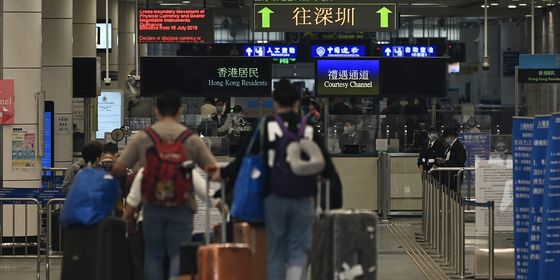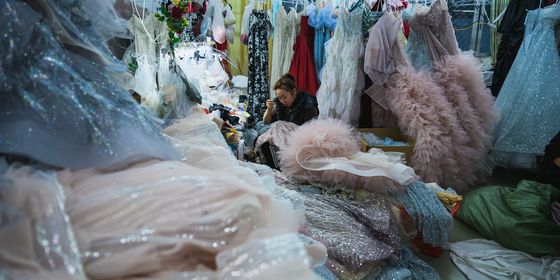Female-only spaces are proliferating, but not everybody is happy about it
Yan He hates the all-pink female-only gyms he’s seen online. “It screams straight man… Who says women must love pink?” he says.
Yan’s gym, which he opened last July in Hangzhou, Zhejiang province, is much more subtle (perhaps because it was designed and decorated by his wife), with no pink to be seen. But a sign at the front desk that reads “No Entry for Men” gets the message across.
“No odd stares, freedom to wear attractive workout clothes, and a completely female-friendly exercise atmosphere,” reads one of the gym’s adverts on the social media platform Xiaohongshu, where around 60 percent of users are women. The gym, which is run day-to-day by Yan’s female business partner and a team of women trainers, is a success. Yan is even looking for more trainers to meet growing demand.
Demand for female-only spaces is growing in China. Along with gyms, women-only hostels and bars can be found in many tourist cities like Chengdu, Sichuan province, and Dali, Yunnan province. Guangzhou and Shenzhen, both in Guangdong province, have had female-only carriages on their metro systems since 2017. These places promise women safety and peace of mind when they travel, exercise, or commute amid frequent media reports of violence and harassment against women in public spaces.
Female-only venues can make business sense too—Chinese women are consuming and traveling more than ever. According to Yicai, a financial news platform, women have become the primary decision-makers in families when it comes to travel. Zou Qingling, CEO of popular travel booking site Lvmama.com, told the publication that “Nearly 69 percent of the platform’s users are female tourists, and on average, women spend 27 percent more on travel than men do.” Over 60 percent of fitness app users in China are female according to Jiemian News, while data from ecommerce site JD.com shows that fitness and sports purchases make up 89 percent of women’s spending on the platform.
But women also feel increasingly unsafe. Alarming news reports about hidden cameras in hotel rooms and incidents of women being molested and harassed in gyms have made many Chinese women apprehensive about accessing these services. In 2020, a young couple traveling in Suzhou, Jiangsu province, were filmed by hidden cameras in their hotel. A 40-minute video was uploaded to an adult website and had already been viewed 40,000 times by the time they discovered it and reported the hotel to the police. Stories of sexual harassment on public transport regularly appear in the media and online.
A 2014 study by travel platform Trip Advisor shows that over 23 percent of Chinese women believe traveling alone is unsafe, a rate way above the global average of 2 percent among women.
Liu Meidi stayed at a female-only short-term rental in Chengdu during a solo trip last December. Liu spent one day in a regular hotel but quickly moved out due to feeling unsafe. “I saw two red flashing lights next to the USB port by the bedside tables. I was really anxious about it,” Liu tells TWOC about the hotel room. “I was worried that they might be pinhole cameras.” Liu called the front desk and asked for a female staff member to come and inspect the lights, but opened the door to a six-foot-tall man.
Liu felt much safer at the female-only establishment. “Sure, its location wasn’t as convenient, and maybe it didn’t have all the security features, but somehow, staying there just made me feel more secure and gave me greater peace of mind,” says Liu. “I definitely didn’t have to worry about the hidden cameras.”
Other women are attracted by the social aspect of female-only establishments. Chen Yinuo, a college senior from Fujian province, was planning a trip to Dali after her recent relationship broke down when she came across adverts for female-only hostels on Xiaohongshu. She has always felt more comfortable socializing with women, so she chose a women’s hostel that offered activities like bonfire nights and painting workshops. “I pictured a place with lots of girls hanging out, chatting together, and becoming friends with each other,” says Chen. “The trip turned out better than I imagined.”
At the hostel, which accommodated around seven people, Chen quickly befriended other travelers from all over the country, as well as the two female owners. She was never short of a travel companion for visiting attractions. When they weren’t taking in the sights, the women would spend their time playing with Lego or having outdoor barbecues.
“During my second night, there was a power outage. Xiaoli [one of the hostel owners] took out the charcoal stove and we just gathered around the fire in the yard and chatted,” says Chen, recalling her best memory from the trip. “We talked about my relationship. One of them even introduced a holistic doctor to me, which I find very helpful.”
According to Li Qianqian, a feminist blogger on Xiaohongshu from Zhengzhou, Henan province, many women feel more comfortable without men around. Gyms, for example, have traditionally been masculine spaces that could intimidate some women. “Under the male gaze, we can’t help but be conscious of our appearance—the clothes we wear, our posture, and even the intensity of our workouts,” says Li. “As consumers, this [kind of environment] prevents us from fully immersing ourselves in the exercise.”
Female-only spaces promise to cater to women’s needs. Fan Yanping, a 29-year-old from Changsha, Hunan province, turned her three-bedroom apartment into a female-only short-term rental in August 2023. After backpacking across the world for 12 years, she has ample experience of the kinds of female-specific products and facilities missing in most hotels and hostels. “I really care about toiletries, especially since women usually have longer hair. But I’ve found that after using the toiletries provided by hotels, my hair becomes extremely dry and unmanageable, and impossible to comb smoothly as it all gets tangled together,” she says.
She stocked up big bottles of nice shampoo and conditioners, as well as sheet covers for guests to use if they’re on their periods. Similarly, the hostel Chen stayed at in Dali prepared free sanitary products like maxi pads and tampons in the bathroom. These touches have proved popular, with Fan welcoming over 50 women customers since starting her establishment six months ago.
However, some initiatives have attracted fierce criticism. Gu Li, a female-only hostel owner in Yunnan province, told Renwu magazine in August 2023 that she was cyberbullied, mostly by men, following an interview with the local media about her business. In the comment section under a video of the interview, many accused her of discriminating against men, while some even called the front desk of her hostel to voice their discontent with obscene language.
Last April, news outlet The Paper reported that when a woman called state-owned China Railway to suggest they avoid assigning a single woman to a sleeper compartment with three men, she was advised by the rail operator to consider alternative modes of transportation. The incident sparked heated reactions online, with some supporting the woman and citing safety concerns, and others launching misogynistic attacks and calling her melodramatic. Over the last few years, authorities in major cities including Hangzhou, Shanghai, Chongqing, and Beijing have dismissed proposals for female-only carriages on subways, citing high management costs and low social benefits.
Fan Yanping is dismissive of critic’s arguments, seeing her hostel’s female-only policy as no different from hotels that market themselves as family-friendly, or cafes that welcome (or forbid) pets. “Why would a man insist on entering a women’s restroom? I don’t understand,” she says, referring to suggestions of discrimination.
Dang Lulu, a female-only hostel owner in Zhuhai, Guangdong province, is strict about prohibiting men from staying at the rooms she rents out in her two apartments. Last year, she told a husband and wife who had booked a room with her that they would need to find another place to stay, despite the scarcity of affordable hotel rooms during China’s National Day Holiday and it being 11 p.m. already.
“I’ve made it clear in my listing that my place is female only,” says Dang, who first listed two apartments as female-only on the booking platform Meituan in 2021. “There was another girl staying in the second bedroom. She was traveling alone. Allowing a man to stay would be neither fair nor safe for her.”
Li, the feminist blogger, believes many men “don’t actually know women’s struggle in society” which fuels some of their opposition to female-only spaces. “If more places are female-only, then the world can see [the dangers women face] and more women can know they deserve to feel safe,” she says.
However, some have warned that female-only spaces could backfire. Wen Jun, a professor of social development at East China Normal University, told the state-owned China Women’s News last August that such “well-intentioned efforts to care for a specific group may inadvertently highlight and reinforce an idea of inequality. It could potentially harm the group being cared for.”
But while women still face harassment in public spaces and businesses, female-only spaces will probably continue to be popular and even necessary. A 2021 study conducted by the government-affiliated social organization Beijing Dongcheng District Yuanzhong Family and Community Development Service Center shows that women are victims in over 90 percent of harassment cases nationwide.
Yao Jinju, a law professor at Beijing Foreign Studies University, said in a 2018 interview with Chinanews.com that “the legal consequences for the perpetrator [of sexual harassment] are often minimal, while the cost of seeking justice for the victim is high. This is a major reason why many women, despite being violated, choose to remain silent. The cost of seeking justice includes the pressure from the social environment and the cost of police involvement.”
Female-only spaces won’t solve these problems or help end gender discrimination, Li says, but they are a practical response to the realities of today’s society. “Although we all aspire to a world where men and women exist simply as individuals devoid of gender…it’s clear that we haven’t reached that level yet,” Li says.
Not all “female only” businesses help forward that cause. When TWOC visited a “female hostel” in Yunnan province last year, there were customers of all genders staying there. A male staff member told TWOC that the owner (also a man) believed that it was not a sustainable business model to exclude more than half of his potential customer base and only added “female” to his brand as a marketing tactic. Similarly, at a male-owned “for women” gym in Beijing, TWOC found all the trainers listed on the pale pink wall were men.
Others are skeptical of the motives behind men who open female-only businesses. One man who operates a female-only hostel told Renwu in August 2023 that many believe he opened the place to fulfill some kind of fetish. Yan He, the owner of the female-only gym in Hangzhou, is absent from any of his gym’s adverts or posts on social media or at the venue itself, despite the fact he leads the development of all training courses and trains his employees in-house.
While there is certainly demand for female-only spaces to be tapped into, some believe business owners might take advantage for profit rather than to truly support and promote women’s rights. Popular travel site Trips.com, for example, recently piloted a program that offers female-only cabins on sleeper trains for an extra charge. Li worries that this accounts to a “pink tax” on female-only services. After all, she says, “capitalists have no gender.”
Her Havens: The Struggle Over Female-Only Spaces is a story from our issue, “Education Nation.” To read the entire issue, become a subscriber and receive the full magazine.







